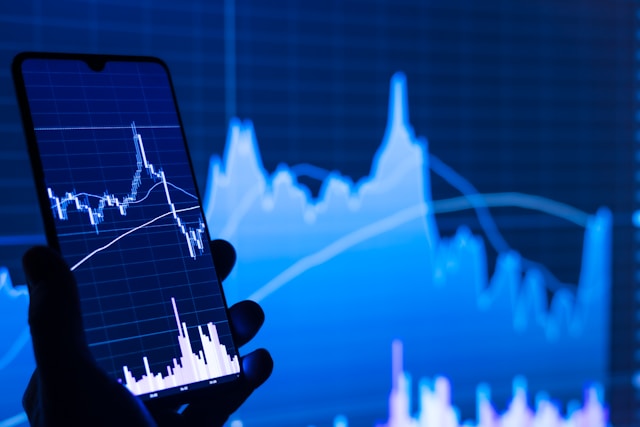Automated trading through forex robots has grown dramatically in popularity as advances in computer technology have made such systems more accessible and effective. While a novice may imagine that computerized trading removes the “human element” and artistic skills needed to succeed in financial markets, in reality forex robots are programmed and refined by skilled traders to implement proven strategies with precision and objectivity. This article explores some of the primary advantages of using forex robots as tools to supplement traders’ capabilities. From allowing nearly continuous trading to enhancing consistency and risk management, forex robots have much to offer even experienced manual traders.
Automated Trading for Efficiency
Forex automated systems allow traders to automate much of the trading process, executing trades on their behalf according to pre-programmed rules and strategies. Rather than requiring constant human monitoring of markets and manual trade execution, well-constructed automated systems can trade markets automatically, potentially for longer hours than traders working alone. For example, popular forex trading platforms work with programming languages to easily automate strategies tested and programmed by traders. Automated systems operating 24/7 without fatigue or distraction from other tasks means traders need not monitor prices and manually trade at all hours to benefit from global market activity.
Consistency and Accuracy
Perhaps one of the most popular types of forex robot is the expert advisor (EA) available for certain trading platforms. EAs follow clearly defined rules for entries, exits, trade management etc., programmed by their creators. This rules-based approach aims to produce consistent, objective results devoid of human emotions like fear, greed and panic which can sabotage decisions. The best EA is rigorously backtested over copious market data, tweaked and optimized to maximize profitable trades and minimize losing ones based on past price behaviour. Implementing the strategy consistently without variation in the system’s process seeks to yield precise replication of pre-tested profitability.
Reduced Emotional Trading
No trader is immune to subjective emotions affecting judgement during volatile markets. However, automated forex systems are indifferent to fear or euphoria, coldly executing their code and ignoring sentiment. While traders may panic and bail from losing trades emotionally, or cling to winners past their sell points greedily, systems dispassionately follow pre-programmed rules. By insulating trading decisions from fleeting feelings, automation aims to avoid expensive mistakes attributable to emotional factors like impulsiveness, hope and regret which plague even experienced manual traders on occasion.
Speed and Precision in Execution
A good example here would be a certain automated system. It boasts nanosecond swiftness in opening and closing positions thanks to direct market access, superior to human reaction times measured in seconds. Precision is also stressed, entering and exiting precisely at predefined price triggers down to the nearest pip rather than approximate placement by hand. Reduced slippage from rapid, pinpoint trade execution allows potentially more profitable implementation of strategies with narrow entry criteria. The consistent alacrity and split-second timing of forex systems in placing orders aims to exploit briefly emerging small edges missed by slower, manual reactions.
Backtesting and Strategy Optimization
An important advantage of computerized trading tools is backtesting capabilities. Programmers can model, tweak and refine ideas by running them through historical data to assess past behaviour numerically. Extensive backtesting helped fine-tune a particular system. Ongoing optimization aims to improve profitability and avoid troublesome market nuances invisible without exhaustive quantitative assessment. Paper trading also mimics real-risk conditions pre-live use. Together, backtesting and optimization seek the “best” strategy formulation to deploy with ongoing evaluation of performance and responsiveness to market shifts.
Increased Market Opportunities
Manual traders have biological limitations on hours monitored and trades placed daily. But well-constructed forex automated systems, run unattended around the clock, always examining markets for suitable entries. They face no fatigue sapping attention or distractions. Hence systems may profit from fleeting windows of trading situations too fast, irregular or minor for humans to discern and seize manually. For instance, systems might spot macro-level correlations triggering medium-term trades impossible for individuals juggling multiple tasks. Their incessant market surveillance aims to capitalize on more and more diverse opportunities as they emerge anywhere globally.
Diversification and Risk Management
Computer systems may simultaneously trade multiple currency pairs, investing positions and hold different timeframes spanning days to intraday scalps. This diversity seeks to reduce portfolio volatility from any single market’s swings. System managers can also program risk controls like automatic tradeclose settings if drawdowns intensify, ensuring traders never risk more capital than initially allocated. Computers’ ability to methodically spreadrisk across varied assets and impose firm risk controls aims to tame portfolio wildness plaguing concentrated manual accounts.
Reduced Workload for Traders
By automating mundane yet crucial trading tasks, forex automated systems aim to lighten traders’ workloads so they may concentrate on higher-value initiatives like research, testing subsequent ideas and overseeing systems. Manually placing or adjusting intraday trades for multiple currency pairs on an hour-by-hour schedule becomes a part-time job. But systems manage such routine trade executions, enabling focus on strategic analysis instead. Automation also liberates traders for normal work/life balance now investment management requires minimal active hours. Overall, forex systems primarily seek to maximize efficient use of traders’ precious time andefforts to augment earning potentials.
Summary
- Automated trading for efficiency by executing trades 24/7
- Consistency and accuracy in following predefined rules and strategies
- Reduced emotional trading by insulating decisions from feelings
- Speed and precision in trade execution
- Effective backtesting and refinement of strategies
- Increased market opportunities due to constant surveillance
- Portfolio diversification and risk management controls
- Reduced workload for traders to focus on more strategic tasks

